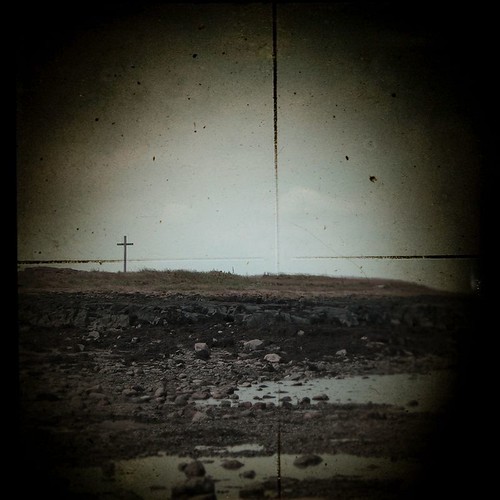The following is a reflection on Mark 6:1-13, the Gospel lesson appointed for Proper 9, year B, according to the Revised Common Lectionary.

“Cuthbert’s Island.” Photo by Rick Morley. TTV filter by borealnz.
Christianity in the west is in deep trouble. In America over 1/4th of adults have left the religion of their youth, most for no religion at all. In Europe, many grand cathedrals and basilicas are more like mausoleums than thriving centers of worship.
People are leaving the faith. But, unlike some, I don’t think the central problem is secularism or pluralism or the lack of a good bass guitarist in the praise band.
I think the root problem is trust.
People don’t trust the Church anymore. And, really, why would they?
The Roman Catholic Church as been embroiled in the child sexual abuse scandal, which has not only found pedophile priests, but also members of the hierarchy who protected those priests in place of protecting children. We have evangelical pastors who have railed against homosexuality who have been found to seek male prostitutes, and who have been accused of courting church youth. And, we have high-profile church leaders make insane statements saying that hurricanes are the result of gays and abortions, that homosexuals should be rounded up and fenced in concentration-camp style, and that kids who seem gay should be punched in the face.
And, with all of that—which is really just the tip of the iceberg—who in their right mind gives the church the keys? Who entrusts us with their spiritual health, much less the spiritual health of their children?
Honestly, the fact that anyone trusts us these days is really quite remarkable.
Jesus, when he comes to his hometown, faces questions of trust. He went home, went to what must have been his family (and childhood) synagogue, and he starts to teach.
The problem here, is that everyone knows him. And they know his family.
How does this hometown-boy have the effrontery to come back and act high-and-mighty? “Where did this man get all this,” they ask.
They don’t trust him. They don’t trust that he speaks for God, or can do the things that he says he can.
And, as a result, “he could do no deed of power there.”
Really, I can’t blame them. I’m not sure I’d believe him either–especially if I saw him grow up like any other kid in town.
So, what does Jesus have to do? He has to earn their trust. He can’t just get it right there and then. He has to keep going. He has to keep teaching. He has to keep changing people’s lives. He has to die on the cross. He has to rise again.
I think that if the church today—the church “as-we-know-it”—is going to survive, we’re going to need to do a few things.
First, we need—as a whole body—to fall on our knees in humility. We have to make it clear that we have made horrific mistakes in the distant past, and in the not-too-distant past. And, this wave of humility and repentance can’t just be a once-and-done thing. We need to repeat over and over again that while we’re an institution with divine aspirations, we are a human institution which has failed, continues to fail, and will fail again.
Second, we need to attempt to win back people’s trust. We need to remember Who we represent. Before we open our mouths or make a bad decision, we need to remember that when we look bad, we made God look bad. We don’t need to update our website or write some more praise choruses. We don’t need to look more hipster and grow a soul patch.
We need to gain people’s trust. Only then will people even consider listening to anything we have to say.
Third, we need to help people remember that, really, it’s not us who is ever-faithful, but God. Jesus. Yes, Jesus had trouble getting people to trust him—but he was found most worthy of the trust that people put in him. God is our rock and our redeemer. God has never let us down.
In God we trust.
And, fourth we need to remember that not everyone is going to be able to trust us, or God. Some people will, as we see in this Gospel lesson, open their doors to us. But, some will reject us, and reject God. Jesus knew that. He told his disciples as much. And when we’re rejected we’re to wipe off the dust from our feet, and keep going.
But, until we start showing the world that we’re capable of humility and some degree of trustworthiness, it will be us who will be covered in the dust.
Pingback: Trust and Dust « Dead Beat Bible Society
Pingback: Kicking Up Dust: Mark 6: 1-13 | Preach Like a Girl!